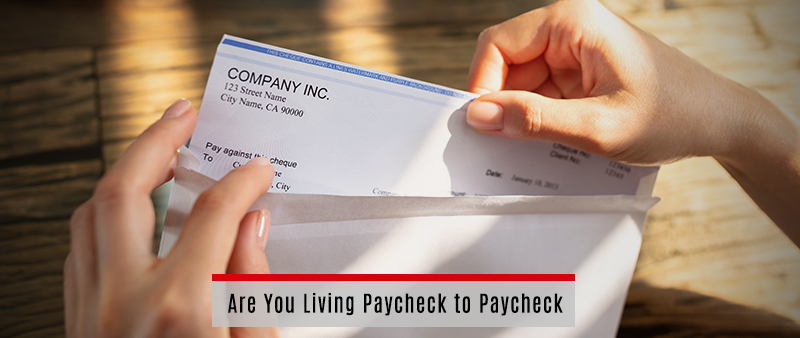
There’s an important question we must ask ourselves, especially in times of economic insecurity: What would happen if you lost your job or another major source of income for a week, a month, or even longer? Do you have money put away in a savings account or certificate? Most importantly, without that income, what’s your Plan B for paying bills and buying necessities for yourself, your family, and your home?
It’s certainly an uncomfortable question, as nobody wants to think of themselves in that situation. But as we have seen in the last year, it’s more important than ever to build a solid savings in case the worst happens.
Are you one of many Americans who is living paycheck to paycheck? Here are a few indicators:
- Living beyond what you can afford. This doesn’t necessarily apply to people with a lower income – you can make six figures and still live beyond your means if you aren’t careful. When you start making more money, you might be tempted to make some upgrades to your lifestyle, such as a bigger home, a new car, more expensive vacations, and so forth. If you manage your money right and make good investments, you can ease into your income bracket with bigger purchases. However, regardless of your income level, if you find yourself living paycheck to paycheck you should outline certain things you can cut out to save money (i.e. dining out, new electronics, etc.).
- Relying too heavily on credit cards. It’s a good idea to possess a credit card as it can help you boost your credit score when used right, and generally, it’s just good to have in case of emergencies, such as a temporary loss in income. But if you find that you’re unable to pay off your credit card bill at the end of every month, it’s a big sign that you’re spending beyond your means. And if you miss a paycheck and are unable to pay off your monthly credit card bill, you may have to dip into your valuable savings to make the payment to avoid harming your credit score.
- Falling back on your savings to make up the difference. Your savings account should be a safe space for the funds you need in an emergency – notably, a loss of income. However, if your checking account is low enough toward the end of each month that you need to dip into your savings, it’s a solid sign that you’re living paycheck to paycheck. If you’re looking for a more secure option for the money you save, ask us about our certificates of deposit (CDs), where you can deposit money into a secure certificate that bears dividends – earning you more money in the long run.